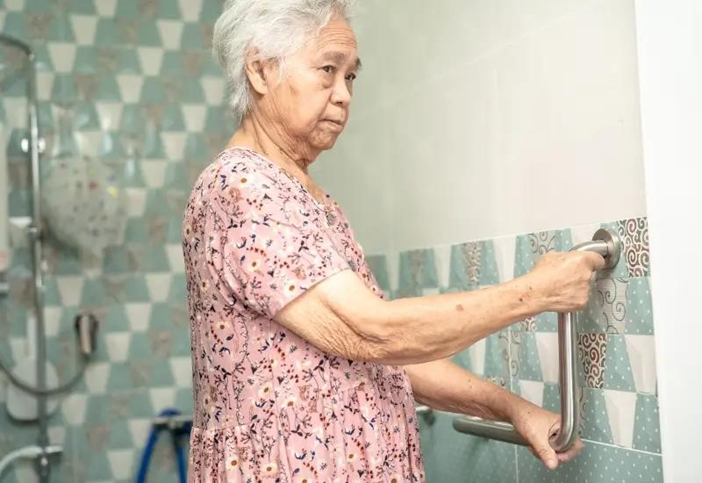.png)
Why Do Alzheimer’s Patients Refuse to Shower?
Carla is happy to help her brother Jack care for their 82-year-old mother. Jack has confided that he’s very uncomfortable having to help bathe Mom, so Carla takes the reins. Mom’s been starting to smell, and it’s clear she’d having trouble bathing on her own. But when Carla tells Mom it’s time to clean up, she refuses to cooperate. Carla doesn’t know what to do after her mother refuses to shower.
Understanding Alzheimer’s Impact on Behavior
At her wit’s end, Carla does some research online. She learns that refusing to bathe is quite common in Alzheimer’s patients like her mom. Behavior changes like this are often due to a combination of the following:
-
Cognitive Decline—Memory loss is a hallmark of Alzheimer’s, and it can make routine activities like bathing confusing. Mom may have forgotten the purpose of bathing or how to perform the steps involved.
-
Sensory Changes—Alzheimer’s and dementia can alter how people perceive their environment. The sensation of water on the skin might feel uncomfortable or even painful. The bathroom, with its bright lights and cold surfaces, can become an intimidating place.
-
Emotional Factors—Fear and anxiety are common in Alzheimer’s patients, and Mom is no exception. Carla learns that bathing can trigger these emotions, especially if the person has had a negative experience in the past. Beyond that, the loss of privacy and independence can be distressing and lead to resistance.
Practical Solutions for Encouraging Bathing
Mom’s refusal to bathe is very frustrating for Carla, but she learns several strategies to make the process more pleasant and less stressful. Carla plans to take these steps:
-
Create a Calm Environment—In the future, Carla will make the bathroom more inviting. She considers installing softer lighting and playing calming music when it’s time for a bath. She’s also purchased a shower chair to provide stability and comfort.
-
Establish a Routine—Consistency can reduce anxiety, so Carla creates a regular bathing schedule for Mom to stick to.
-
Use Positive Reinforcement—When Mom takes a bath without a fight, Carla thanks her for her cooperation. Afterward, they sit down together and have one of Mom’s favorite snacks.
Making Bathing More Comfortable
When Alzheimer’s patients refuse to bathe, it’s easy for caregivers to default to frustration. But now that Carla knows the refusal is part of the disease’s progression, she is much more understanding. She realizes that making Mom feel emotionally secure is just as important as bathing itself. Carla is working hard to establish trust with her mother and provide reassurance and validation where needed. Over time, she hopes her mother will feel more comfortable in the bath.
Get Added Support From BrightStar Care
Dealing with Alzheimer’s and the ensuing refusal to bathe can be frustrating for family caregivers. If a loved one is struggling with this effect of Alzheimer’s, reach out to BrightStar Care. Our Oak Brook, IL team helps families just like Carla’s better cope with the disease. Contact us(Opens in a new window) today to request respite care or in-home personal care services.

